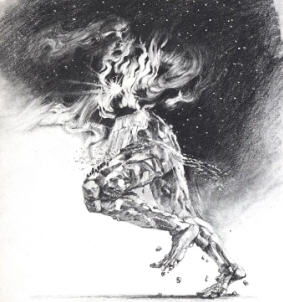
WINDSOR A world-famous Canadian heart surgeon says he believes the body has a soul which departs at death and theologians ought to try to find out more about it.
Dr. Wilfred G. Bigelow, head of the cardio-vascular surgery unit at Toronto General Hospital, said that "as a person who believes there is a soul" he thought the time had come "to take the mystery out of this and find out what it is."
The Moment Of Death
Bigelow was a member of a panel which appeared before the Essex County Medical-Legal Society to discuss problems associated with attempts to define the exact moment of death.
The question has become vital in the age of transplants of hearts and other organs in cases when the donors are inevitably dying.
The Canadian Medical Association has produced a widely accepted definition of death as the moment when the patient is in coma, responds to no stimulus of any kind, and brain waves recorded on a machine are flat.
The other members of the panel were Mr. Justice Edson L. Haines of the Ontario Supreme Court and J. Francis Leddy, President of the University of Windsor.
He Has His Doubts
Bigelow, elaborating on points he had raised during the discussion, said in an interview later that his 32 years as a surgeon had left him no doubts that there is a soul.
"There are certain cases where you happen to be present at the moment when people pass from a living state to death, and some mysterious changes take place.
"One of the most noticeable is the sudden lack of life or lustre to the eyes. They become opaque and literally lifeless.
"It's difficult to document what you observe. In fact, I don't think it can be documented very well."
Bigelow, who became world renowned for his pioneering work in the "deep freeze" surgical technique known as hypothermia and for his heart valve surgery, said "soul research" should be undertaken by theology and allied disciplines within the university.
You Can't Find It
During this discussion Leddy said that "if there is a soul, you are not going to see it. You are not going to find it."
"If there is a principle of vitality or life, what is it?" The problem was that "the soul doesn't exist anywhere specifically, geographically. It's everywhere and yet it's nowhere in the body."
It would "be nice to start experimenting, but I don't know how you are going to get on any of these things," Leddy said. He said the discussion reminded him of the Soviet cosmonaut who returned from space to report there was no God, because he didn't see Him up there.
Maybe so, said Bigelow, but in modern medicine when something was encountered that could not be explained, "the watchword is discover the answer, take it into the laboratory, take it somewhere where you can discover the truth."
The central question, said Bigelow, was "where is the soul and where does it come from."
Reprinted by permission from the Montreal Gazette.
